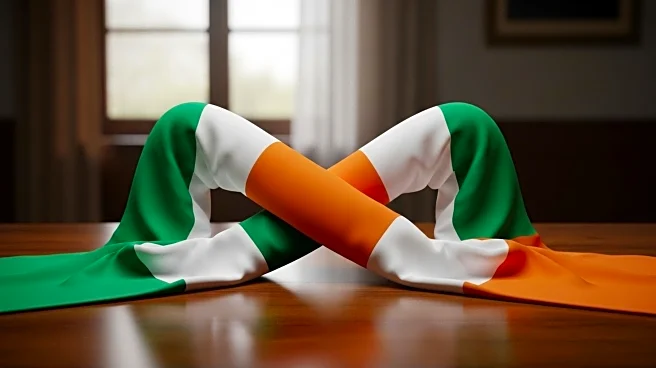What's Happening?
Conor McGregor, the mixed martial arts fighter, has announced his withdrawal from the upcoming Irish presidential election. McGregor, who had been actively seeking nominations from Dublin City Council and Kildare County Council, cited the election's eligibility rules as a 'straitjacket' that hindered a true democratic contest. Despite his efforts to rally support through social media, McGregor decided to step back after consulting with his family. His decision comes as Ireland prepares for the election on October 24, with three candidates already securing the necessary backing to run.
Why It's Important?
McGregor's withdrawal highlights the stringent eligibility criteria for presidential candidates in Ireland, which require endorsements from either 20 members of the Irish parliament or four local authorities. His exit from the race underscores the challenges faced by non-traditional candidates in navigating political systems. The development also reflects on McGregor's public image, which has been marred by legal issues, including a civil case where he was ordered to pay damages for a sexual assault claim. This situation may influence public perception and the political landscape in Ireland, as it raises questions about the viability of celebrity candidates in serious political roles.
What's Next?
With McGregor out of the race, attention shifts to the remaining candidates, including Catherine Connolly, Jim Gavin, and Heather Humphreys, who have secured their nominations. Sinn Féin, the main opposition party, is expected to announce its candidate on September 20. The focus will be on how these candidates address key issues and engage with the electorate. McGregor's withdrawal may also prompt discussions on potential reforms to the nomination process, aiming to balance accessibility with maintaining rigorous standards for presidential hopefuls.









